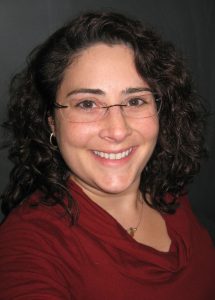Research Team Leader
Melissa A. Pasquinelli, Ph.D.
Professor of Forest Biomaterials
Alumni Distinguished Undergraduate Professor
University Faculty Scholar
Fellow of the American Chemical Society (2018)
CNR Associate Dean for Academic Affairs (opens in a new tab)
mpasqui [at] ncsu.edu (also works for Google Hangouts/Meet)
Office: Biltmore 2018B Phone: 919.515.9426
Lab: Biltmore 1 Phone: 919.515.0254
Twitter: @docmelissap Skype: Melissa.A.Pasquinelli
LinkedIN Profile ResearcherID
ORCID Google Scholar
Calendar Map to CNR
I enjoy that I get to balance my professional time between working on scientific research projects and teaching budding engineers and scientists. Whether it’s a new research finding or seeing the “light bulb” go on for a student, I feel invigorated most days by my work.
As a scientific researcher, I am an expert in the development and application of simulation techniques “from the nanoscale” that predict how molecular structures and the dynamics of molecular systems relate to their functional roles (mechanical, protective, and toxicological), including how they may be affected by thermodynamics (temperature, pressure), the local chemical environment (solvent, moisture, pH, presence of other species, etc.), and the physical environment (interfacial, confinement, shearing). I revel in working closely with experimentalists and industry to address scientific problems in a variety of application areas, including: polymer fibers and nanocomposites, polymer degradation, interfacial science, health and safety, and sustainability/green chemistry.
As an instructor, I apply active learning strategies to engage the students and to appeal to as many learning styles as I can throughout the lesson. I put much effort toward designing assignments that necessitate critical thinking and problem solving strategies, and thus steer the students toward going beyond just crunching numbers and “regurgitating” the technical content. I also incorporate practical applications and examples into the course that appeal to the students, such as the potential implications on the environment.
Outside the classroom, I strive to be an effective advisor, mentor, and role model for students and research personnel. I also enjoy serving in leadership roles within my institution as well as through my professional societies since I am passionate about making a difference for the common good.
